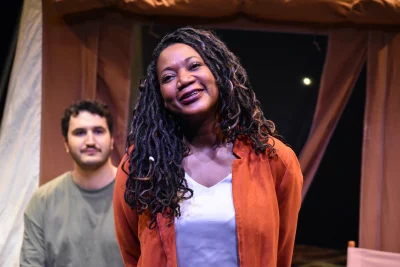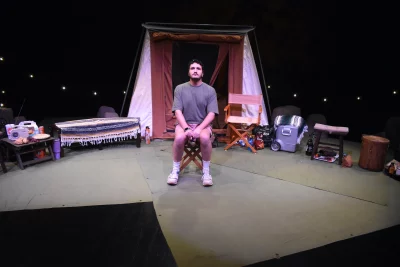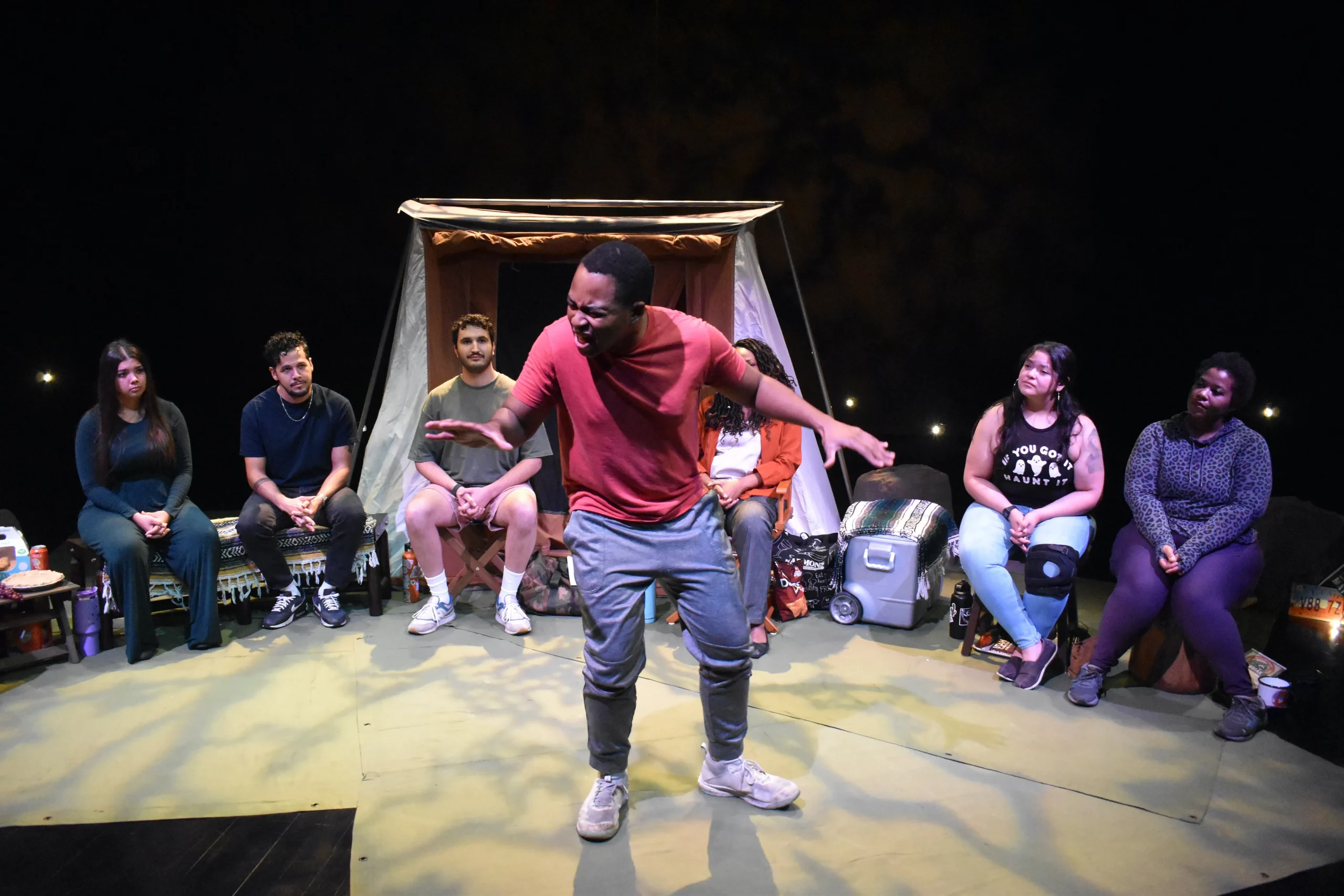Play Review: Full Color
Performance & Theatre
Full Color
Plan-B Theatre Company
October 4–November 10, 2024
Under a swaying tree and through the sounds of chirping crickets, eight friends swap stories around a campfire, their tales reenacting the players and their actions that took place. But their stories, while at times humorous, are filled with hurt, anger and distress.
“Full Color,” presented by Plan-B Theatre Company, features eight Black or Indigenous or actors of color (Yolanda Stange, Abyanna Wood, Pedro Flores, Talia Heiss, Terence Johnson, Estephani Cerros, Alex Smith and Alec Kalled) playing their playwright counterparts (Dee-Dee Darby-Duffin, Courtney Dilmore, Tito Livas, Tatiana Christian, Darryl Stamp, Iris Salazar, Chris Curlett and Bijan J. Hosseini), the latter’s lived experiences showcased to audience members through monologue.

While underscoring encounters and emotions all too familiar for people of color, each monologue highlights BIPOC experiences unique to Utah. The state, according to 2020 United States Census data, is comprised of nearly 62% white residents.
Take “Fried Chicken,” the show’s first act performed by Salt Lake local Yolanda Stange and written by playwright Dee-Dee Darby-Duffin. Stange, reenacting Darby-Duffin’s encounter with a Smith’s employee, does so with wit: “This community looks like you, not me, so I need you to check yourself,” says Stange to the worker who attempted to embarrass her by assuming she was on food stamps. But Stange is also confronting the audience.
Throughout the show, other similar scenes take place; the actor, center stage, shares the playwrights’ lived encounters. Some, like “Fox and the Mormons” by Black playwright Chris Curlett show how “draining” Utah culture can be for BIPOC residents. Others, like Diné playwright Courtney Dilmore’s “Here” denote healing. At other times, acts may confront audiences with experiences they have had the freedom to not experience.
“As Shelby Steele says in White Guilt, Black power is white guilt. White liberalism is white supremacy, as it allows white people to feel morally superior to others,” says Talia Heiss in “I Still Have to Live Here” written by Tatiana Christian. Heiss and Christian also speak to performative politics, particularly the way they aid white liberalism as opposed to helping the people of color those politics are meant to serve.

The final act, “At Least One” by Persian and Okinawan playwright Bijan J. Hosseini, hauntingly transfixes the audience. Actor Alec Kalled, now alone on the stage (his peers having moved to the theater’s outskirts), performs Hosseini’s harrowing experience of a police officer racially profiling him. “Freeze. Don’t move. Hands up. Don’t shoot. Give me an excuse. Please don’t shoot. Please don’t shoot, please don’t shoot, please don’t shoot,” Kalled says, his hands gripping an imaginary 10-and-2 in the air.
“Full Color,” through laughter, sorrow and hard-to-swallow realities, is expertly driven, giving people of color a declaration of resistance and truth against the large, privileged monolith of white Utah.
“Full Color” runs until Nov. 10 in the Studio Theatre at the Rose Wagner Performing Arts Center. The program, part of their “Color Series” featuring “fictional worlds, influenced by the playwrights’ personal experience,” is also part of the Plan-B’s “A Week with A Play” high school program. Tickets for the public range from $15–25. ASL and sensory-friendly services are also available. To get tickets and to learn more, visit planbtheatre.org/fullcolor.
Read more play reviews from SLUG:
Play Reviews: The 10th Annual Great Salt Lake Fringe
Play Review: Bitter Lemon

